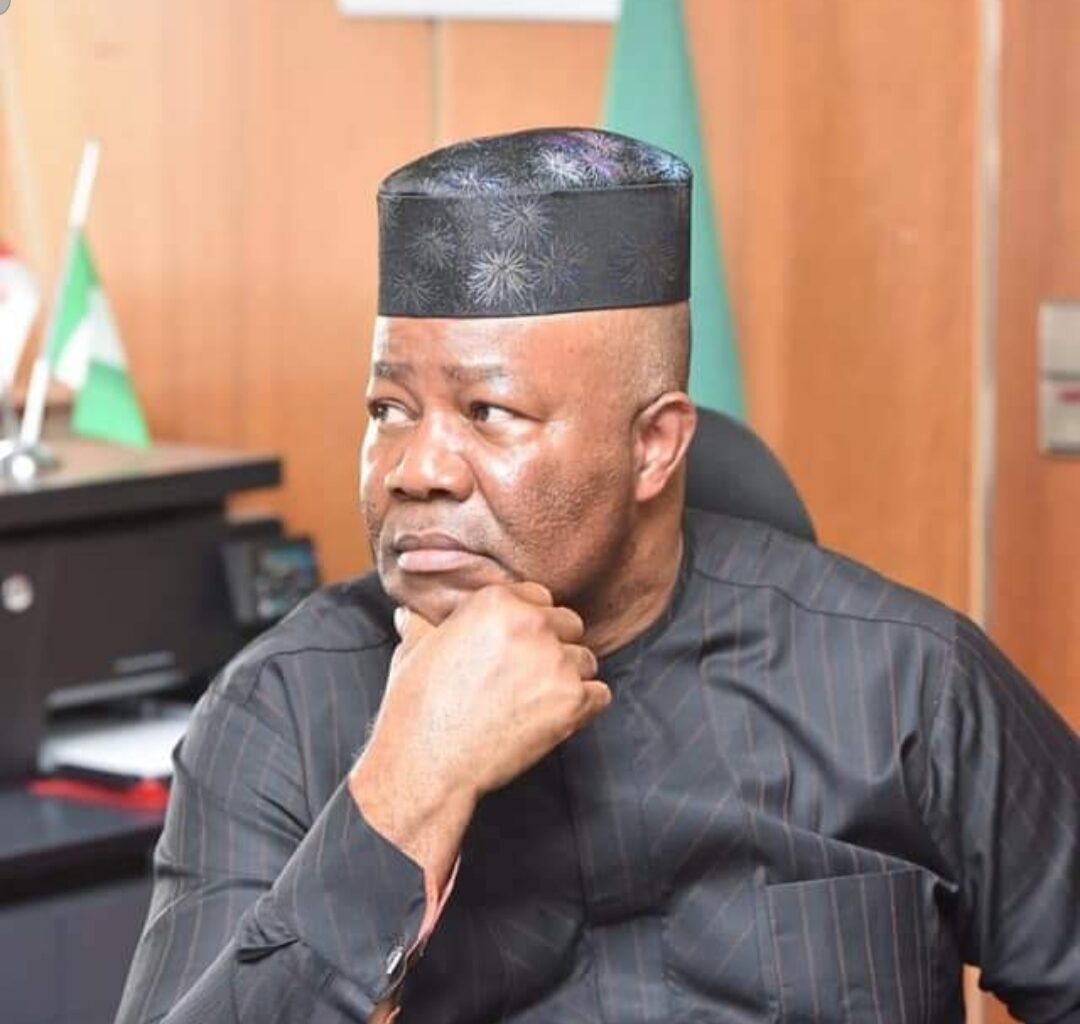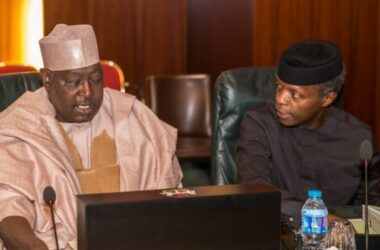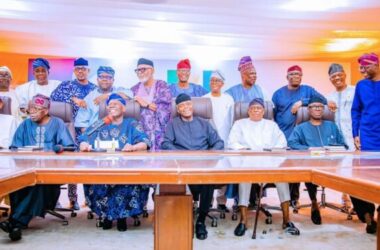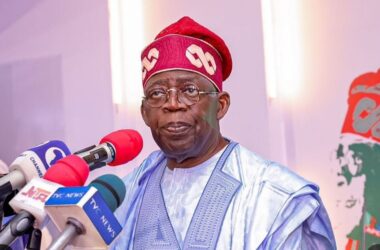It was the 19th century British statesman and Prime Minister, Benjamin Disraeli, who said, “One secret of success in life is for a man to be ready for his opportunity when it comes.”
For Sen. Godswill Akpabio, life has been a series of opportunities which have presented themselves at the most auspicious times, and which, for the most part, he has managed to maximize to great effect. A lawyer and former school-teacher, he has, since his entry into the political terrain, not only bestridden his native Akwa Ibom State like the proverbial colossus, but also stamped his imprint on national politics.
His time as Governor of Akwa Ibom State (from 2007 to 2015) was, by common consensus, a time of ‘Uncommon Transformation.’ Indeed, Akpabio seemingly patented the use of that word, ‘Uncommon’ as far as the Nigerian political lexicon is concerned, not just by his pronouncements or promises, but by the unprecedented governance deliverables that marked his tenure. One of his signature projects, the Godswill Akpabio International Stadium in Uyo, the state capital (also known as the Nest of Champions, because it is modeled after the similarly-shaped Olympic Stadium in Beijing, China) is a landmark that has served as the preferred venue for numerous local and international sporting engagements, as well as big-ticket events such as concerts and rallies – all of which confirm its status as one of the best such facilities in Africa.
But even this excellent facility, which has helped to beam universal attention on Uyo and catapulted it from the margins to the mainstream of Nigeria’s comity of cities and preferred destinations for investment and tourism, is simply a tip of the ‘ice-cream’ as far as Gov. Akpabio’s plans for the complete overhaul and modernisation of the city (which was no more than a backwater and a glorified village back in the day) was concerned. He proceeded to consolidate on the state government’s investments in other landmarks such as the exquisite Ibom Le Meridien Hotels and Golf Resort, the Victor Attah International Airport, the Ibom Tropicana Entertainment Centre (a business and leisure resort created in the image of famous global icons such as America’s Disneyland in Orlando, Florida) and the Ibom Hilton, to name just a few – thereby lifting their ultimate standards to new levels upon completion. The administration also embarked on the construction of strategic flyover bridges spanning both single-lane and dual-carriage ways across the city-centre, as well as a labyrinth of semi-urban road networks, all of which have resulted in the transformation of the city’s landscape, not to mention a whole new skyline that would be totally unrecognizable to previous generations of residents and visitors. These roads are served by an innovative pipe-jacking drainage system which (especially its underground component) has had an incredibly salutary impact on the control of flooding and erosion is a low-lying location such as Uyo, which – like the rest of the state and indeed the Niger Delta region as a whole – is prone to these perennial menaces.
Other cities and towns in the state – such as Ikot-Ekpene (now graced by the magnificent Four Points by Sheraton Hotels and Towels) as well as Itu and Eket, etc. – can also testify to the Akpabio administration’s uncommon touch.
In the course of his tenure, Gov. Akpabio also advanced the development of the Ibaka Deep Seaport in a bid to position the state’s economy for the full benefit of its maritime location, the better to take advantage of the burgeoning trade (both global and intra-African) in and out of the Gulf of Guinea. The development of this natural port is just one component in the government’s far-sighted plan for the proposed multi-purpose Ibom Industrial City. .
Determined to open up the entire state (including its remotest hinterlands) up to the opportunities offered by the modern marketplace of goods, services, information and ideas, the Akpabio Administration also embarked on the construction of a comprehensive network of rural roads, bridges and other impactful projects in the 31 LGAs in the state. Beyond access, these rural locations today enjoy the benefit of that administration’s commitment towards enhancing the people’s quality of life in such areas as affordable and accessible healthcare (complete with a free health care policy for pregnant women, children and the aged); low-cost housing; effective policing; rural electrification and energy distribution; agriculture and food security; mass transit; and water supply, etc.
Cognizant of the fact that even the most advanced infrastructure – for all its evident benefits – is meaningless without the human capacity to sustain and enhance it in the long term, Akpabio’s government also pioneered a forward-looking and much-acclaimed free primary and secondary education policy in the state. He re-conceptualized the Akwa Ibom State University as a dual-campus institution strategically-located at Ikot Akpaden (in Mkpat Enin L.G.A ) and Obio Akpa (in Oruk Anam LGA). He prioritized educational support for Akwa Ibom students, wherever they might be studying, and manpower development for public servants in the state civil service. It is on record that it was the Akpabio administration that introduced the first e-library in Nigeria (www.ibomelibrary.gov.ng) as a component of his state’s educational ecosystem.
Needless to say, these accomplishments, beside propelling Akwa Ibom State into the limelight, also beamed a keen spotlight on the leadership pedigree of the man called Godswill Akpabio. Upon his exit from Government House in Uyo in 2015, a plethora of voices across the country’s political and social spectrum began speculating as to the motivations and influences that drive his uncommon leadership style, and – more importantly – his ability to replicate his governance paradigm in higher office.
But they need not have speculated; all they needed to do was look at the man’s provenance. Born on the 9th of December 1962 in the community of Ukana, Ikot Ntuen in Essien Udim LGA of what is now Akwa Ibom State, Godswill Obot Akpabio comes from a family of dedicated public servants. While his grandfather, Okuku Udo Akpabio, was a Warrant Chief in the Ikot Ekpene Province of colonial and post colonial Eastern Nigeria, an uncle, Dr. I. U. Akpabio, was the Minister of Education and Internal Affairs in the the government of Eastern Nigeria. Justice Nsima Akpabio, his cousin, was a senator in Nigeria’s Second Nigerian Republic. The young Godswill lost his father, Chief Obot Akpabio and was raised by his mother, Madam Lucy Obot Akpabio (née Inyangeto). He had his early education in the locality of his birth. After his secondary education at the Federal Government College, in Port Harcourt, he proceeded to the University of Calabar, where he obtained a degree in Law.
Upon leaving school, Akpabio had a stint as a school teacher before taking up an appointment with the law firm of Paul Usoro and Co. Other stints included the Lagos-based EMIS Telecoms Limited, a wireless telecommunications company, where he rose to become the MD/CEO. His appointment in 1999 as commissioner for Petroleum and Natural Resources by Gov. Victor Attah of Akwa Ibom, siignaled the beginning of Akpabio’s political oddysey. By 2006, he had served the Attah administration as a Commissioner in 3 key ministries.
In 2006, his bid for election as Governor of the state was a success as he won the primary vote of his party, the People’s Democratic Party. Running on the catchy slogan, ‘Let God’s Will Be Done’, Akpabio was elected Governor in 2007 – the 3rd elected Chief Executive of the state, after Obong Akpan Isemin (1991-1993) and Obong Attah, his boss and immediate predecessor (1999-2007) and to the 9th leader overall – if you counted the military Governors and Administrators that had been at the helm since its creation in 1989. He received a mandate for a second term in 2011, and became Chairman of the newly-formed PDP Governors Forum in 2013.
At the end of his 8-year stewardship, Gov. Akpabio heeded his people’s clamour for his further service at the federal level by running for – and again, winning – the race to represent the people of Akwa Ibom North-West Senatorial District in the Nigerian Senate. His performance in the country’s upper legislative chambers was no less notable, as he was soon appointed to the position of Senate Minority Leader by the PDP caucus in the chambers.
In August 2018, Akpabio took his political trajectory in a new direction when he changed his allegiance from the PDP to the All Progressives Congress (APC). Shortly after, in August of 2019, he left the Senate to become Nigeria’s Minister for Niger Delta Affairs under President Muhammadu Buhari.
Fired up by the zeal to bring the benefit of his experience in governance to all Nigerians – rather than just his immediate constituency – Akpabio threw his hat into the presidential ring as the APC prepared to choose a presidential flagbearer in the run-up to the 2023 elections. It was a short-lived campaign as he eventually stepped down in favour of the eventual winner (and now President-elect) Asiwaju Bola Tinubu in the course of the primaries.
A few weeks later, voters in the Akwa Ibom North-West senatorial district again handed him a mandate to return to his old Senate seat, as the nation awaits the advent of the 10th Senate at the end of May, 2023.
Akpabio and his wife, the former first lady of Akwa Ibom State, Mrs. Ekaette Unoma Akpabio, have four daughters and a son.
His mind-boggling record of accomplishments – especially during his illustrious gubernatorial tenure – has over the years brought Sen. Akpabio a harvest of awards and recognitions, including honorary doctorate degrees and prestigious Fellowships from a diverse and distinguished variety of academic, industry, civic, professional, media and political stakeholders both locally and internationally.
The current buzz around Sen. Akpabio as he prepares to return to his old seat in the Red Chamber, is his reported bid for the Presidency of that Chamber, and the immense traction (as well as pushback) it has received across the nation’s political class and the media space (including viral commentary on social media). Having reportedly received the endorsement of major stakeholders, including the President-elect and those who wish to see a first Senate President from the country’s South-South region in 40 years (after the tenure of Dr. Joseph Wayas from Cross River State in the 2nd Republic), Akpabio is once again in the eye of the needle as he weighs the implications of yet another opportunity that an uncommon destiny is dangling before him – even while others weigh, not just his suitability for the nation’s third-highest elective position, but also make the usual political permutations that go beyond competence and character, into the murky realms of ethnic, regional and religious balancing, as well as ‘party supremacy’, and so forth.
If indeed Sen. Akpabio is in contention for the Senate Presidency – or is even the front-runner, as seems to be the case – the path to his ascension to that lofty seat is by no means a foregone conclusion, as the field of contenders is a formidable one indeed. But there is no denying the fact that if competence, a sterling record of achievement in both his private professional capacity and in public service, a unique understanding of, and staunch adherence to, the tenets of good governance, a far-sighted vision of development in its various manifestations and the ability to communicate that vision convincingly to its prospective beneficiaries, then Sen. Godswill Obot Akpabio is a match for – if not head and shoulders above – any other contender for the Senate Presidency. Much has also been made of his reputation as a ‘nationalist’ and his ability to build bridges of comradeship across the divides of Nigeria – thanks to his gregarious, back-slapping public persona and his persuasive style. In a country whose divisions are still uncomfortably raw (as we saw in the 2023 elections), a unifier in high office would have the effect of a refreshing oasis in a scorching desert.
Perhaps Sen. Godswill Obot Akpabio is that much-needed oasis at this juncture in the country’s continuing quest for cohesion, peace and prosperity.
Of course, in Nigeria’s fluid – even slippery – political culture where allegiances can shift overnight, nothing at all is a given. But perhaps the former Akwa Ibom State Governor and his supporters have a ready assurance of his success – or consolation, if you like – in the form of his old campaign slogan:
‘Let’s God’s Will Be Done.’






